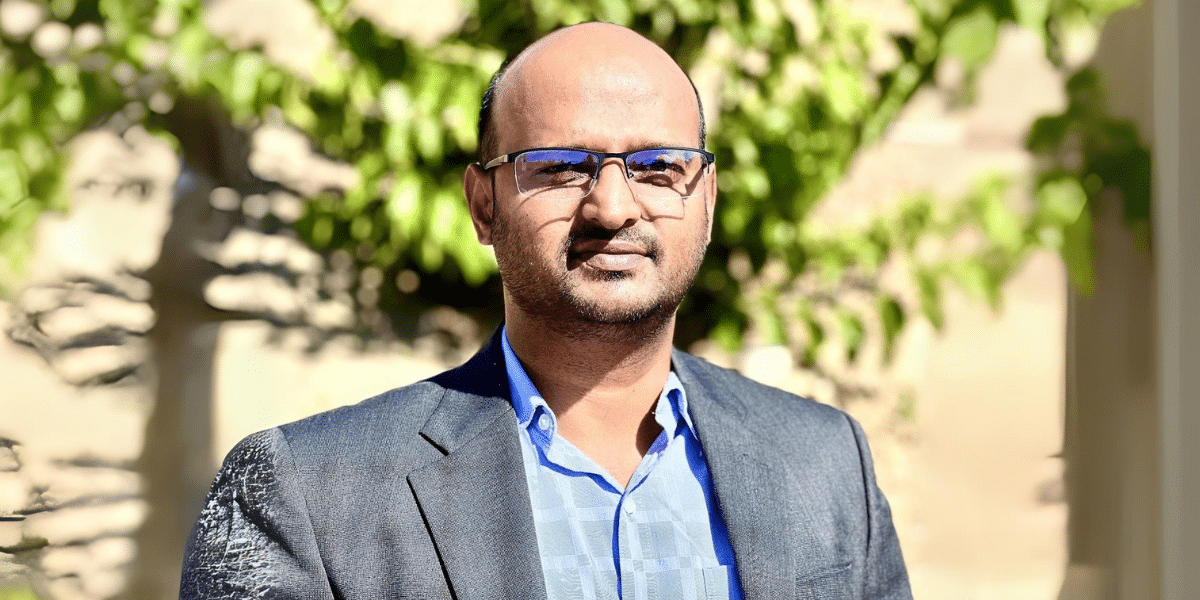By: Chiara Accardi
As Artificial Intelligence continues its influx into everyday systems and machines, business processes are on the verge of a major revolution. Emerging technologies such as artificial intelligence, machine learning, and advanced analytics are revolutionizing corporate finance forging solutions to address some of the toughest challenges faced by the sector.
Sandeep Kumar, an eminent leader in SAP Artificial Intelligence specializing in corporate financial reporting, financial planning and analysis, and finance transformation through AI and automation, in his interview on Daniweb, an active community of corporate professionals and enthusiasts. During this insightful discussion, Sandeep pointed out that AI’s adoption has soared in recent years, with organizations increasingly integrating it into their operations.
According to a McKinsey report, a growing number of businesses had adopted AI in their operations and product offerings by 2017. This figure skyrocketed in the next two years, reaching its peak adoption in 2019. A similar trend continued over the next few years, with AI adoption and usage stabilizing during the period from 2020 to 2022. As of 2023, a large number of organizations worldwide have adopted AI in some capacity to enhance their operational efficiency.
Many contemporary experts are optimistic that AI has the potential to transform several core areas of corporate finance, including financial modeling, investment strategy optimization, and complex data analysis. Growing companies can benefit tremendously in terms of enhanced financial modeling and investment banking management.
Also, effective management of complex financial models and optimization of investment strategies can be simplified by leveraging AI algorithms and automation.
“AI is revolutionizing financial reporting by automating complex tasks, improving accuracy, and enabling real-time data analysis,” said Kumar. “This allows businesses to generate insights more quickly and make informed decisions that align with real-time operations and market conditions.”
Many organizations across the globe are already investing in AI for anomaly and error detection, demand and revenue forecasting, revenue analysis, and decision support.
Kumar’s optimism extends beyond AI. He believes that AI and automation, as well as other emerging technologies such as Natural language processing, cloud computing, and biometric authentication, will further enhance the finance sector’s capabilities.He looks forward to a bright future of cloud computing by its ability to provide scalable solutions.
However, technology alone isn’t the solution. “Industry professionals must continuously upskill, maintain a strategic mindset towards digital transformation, and stay abreast of regulatory changes to remain competitive in this evolving landscape,” Kumar emphasized.
“AI is revolutionizing financial reporting by automating complex tasks, improving accuracy, and enabling real-time data analysis. This allows businesses to generate insights more quickly and make informed decisions that align with real-time operations and market conditions,” Kumar stated.
One of the key advantages AI offers is its ability to strengthen risk management through predictive analytics and anomaly detection. By identifying potential issues before they escalate, AI helps organizations maintain financial integrity. “AI enhances risk management by identifying irregularities early, ensuring issues are addressed before they become significant problems,” Kumar explained while adding that AI and ML’s ability to automate routine tasks will allow financial professionals to focus on more strategic initiatives and groundbreaking strategies in finance.
“In the future, I envision AI and ML taking over mundane tasks, empowering financial experts to innovate and lead the industry forward,” said Kumar.
With over two decades of experience in driving SAP Enterprise Transformation Strategy and Analytics projects in Fortune 500 major global corporations including Farmers Insurance Group, Dr. Pepper Snapple Group, Hershey, Heineken, and Unilever. He currently leads the SAP Program Office at Farmers Insurance Group, (Parent Organization- Zurich Insurance Group), one of the largest P&C Insurance companies in the United States and the Top 25 in the world with 26B P&C premium, where his expertise in financial process management and architecture plays a pivotal role in generating billions in annual growth.
Sandeep oversees the financial process and architecture of SAP Financial Accounting and Analytics Systems that is used to generate the financial result of the company of over billion in annual growth, showcasing his adeptness in financial data management and Analytics at the highest levels.
“My approach centers on creating flexible yet structured Artificial intelligence integration frameworks, which include phased migration strategies and split analytical review systems for accurate financial reporting,” Kumar explained.
Sandeep’s profound strategic foresight is complemented by his technical prowess, making significant strides in financial transformation through innovative use of Artificial Intelligence, Machine Learning, and Robotic Process Automation technologies. These initiatives have significantly improved operational efficiencies, reduced error rates, and streamlined the financial close and reporting processes, fundamentally transforming traditional financial operations from Workday 15 close to Workday 5 financial close of book of business, speeding up the financial close process from a traditional 15-day cycle to just five days.
Sandeep’s commitment to the SAP Enterprise Solutions community is evidenced by his active role in mentoring emerging SAP AI professionals and his contributions to the development of AI advancements in financial reporting standards. His thought leadership is recognized on platforms such as LinkedIn where he is a peak SAP and AI Voice, influencing a broad audience with insights into finance and Insurance business process transformations with a suite of professional certifications, along with a track record of scholarly articles and editorial contributions to the AI in finance and insurance field. His career is a testament to a relentless pursuit of excellence and innovation in SAP Artificial Intelligence for Finance and Insurance, making him a fitting candidate for this prestigious community.
Kumar’s long-term professional goals include developing robust AI frameworks for preventing financial reporting anomalies, promoting sustainability in financial reporting by developing comprehensive integration frameworks and influencing global adoption, and enhancing shareholder wealth by creating advanced financial modeling platforms that integrate AI and machine learning. Kumar also wants to continue active participation in industry forums, policy discussions, and expand his research activities, and develop educational programs to inspire and mentor future finance leaders.
To find out more about the role of AI in shaping the future of corporate finance, please connect with Sandeep Kumar on Linkedin
Published by: Holy Minoza

















